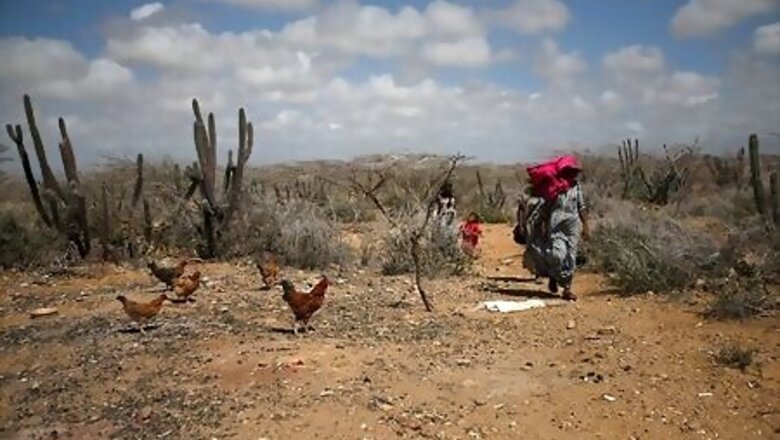
views
BOGOTA Coronavirus is making it more difficult for indigenous Wayuu people in Colombia to survive and putting children at risk of malnutrition, advocacy group Human Rights Watch (HRW) said on Thursday.
Travel restrictions to contain the spread of COVID-19 have severely their limited access to food, HRW said in a report with the Johns Hopkins Center for Humanitarian Health. The majority of the 270,000 Wayuu live in Colombia’s impoverished and arid La Guajira province in the north of the country.
“Rural indigenous communities in La Guajira can’t get sufficient food or enough water for basic hygiene, such as hand-washing, and access to healthcare and information is very poor,” HRW’s Americas director Jose Miguel Vivanco said in a statement.
“This situation has for years contributed to one of the highest levels of child malnutrition in Colombia, and raises critical concerns in the current context of COVID-19,” Vivanco added.
The Andean country has reported more than 420,500 cases of coronavirus and just under 14,000 deaths. La Guajira has reported over 3,000 cases. Some 65 Wayuu have been infected in the province.
President Ivan Duque declared an ongoing national lockdown in late March that is due to lift at the end of August.
Even before coronavirus, food insecurity and malnutrition plagued Wayuu communities, exacerbated by mismanagement and corruption, migration from neighboring Venezuela amid a humanitarian crisis and climate change, HRW said.
La Guajira has 7% of Colombia’s population but accounts for a fifth of malnutrition deaths in children under 5. Of those, more than 75% are from indigenous communities, HRW added, citing government data.
Government initiatives to address malnutrition have been beset by shortcomings, the report found. School meals have at times been scant or spoiled and treatment for malnutrition hard to access.
Disclaimer: This post has been auto-published from an agency feed without any modifications to the text and has not been reviewed by an editor




















Comments
0 comment